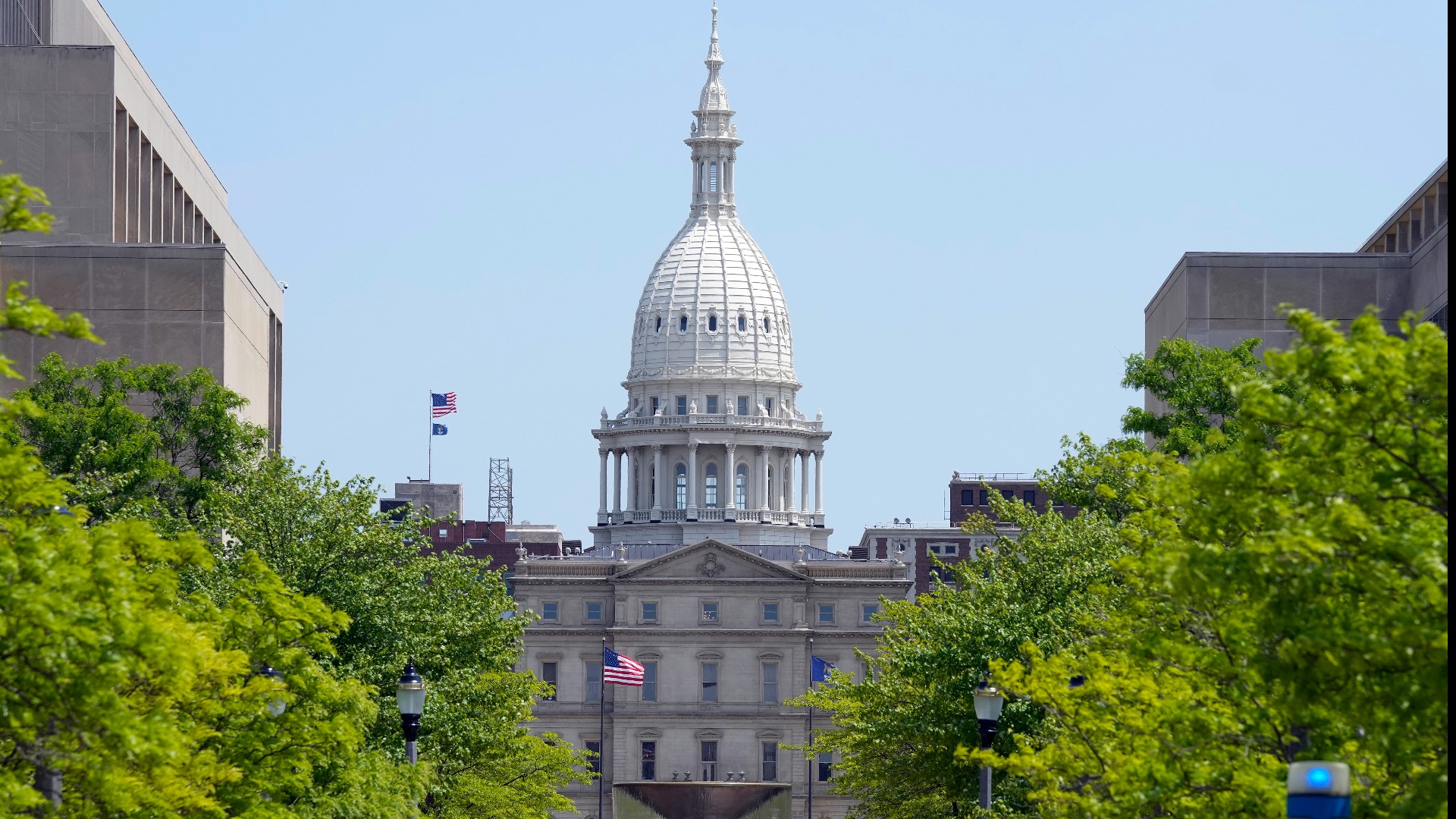LANSING – Michigan would have more state troopers, one fewer prison and no more free bottled water for Flint residents under budget bills approved by the state House on Tuesday.
The plan also beefs up funding to fix Michigan roads, though extra road funding in 2019 will remain below the $1.2-billion level it is expected to hit when a 2015 road funding plan is fully implemented in 2021.
The "general omnibus" budget the House approved in a 66-41 vote totals just under $40 billion, of which $8.6 billion comes from the state's general fund.
The House separately approved, in a 71-36 vote, a $16.9-billion education budget, of which $13.6 billion comes from the School Aid Fund, $1.2 billion comes from the general fund and most of the balance comes from the federal government.
"This is a responsible, accountable plan that will continue our great state's economic momentum," said Rep. Laura Cox, R-Livonia, chairwoman of the House Appropriations Committee.
Cox noted lawmakers moved a supplemental appropriation for the 2018 budget to get an extra $175 million to spend on roads this year. She said general fund spending of close to $10 billion is slightly less than in the current year, as the GOP-controlled Legislature works to "rein in government spending wherever possible."
She said she has no qualms about ending bottled water for Flint because funding remains in place for free water filters for residents who want to use them, among other state services for Flint.
The Senate is working on its own budget plan. Differences between the House and the Senate will have to be worked out before final votes are taken and the spending plans are sent to Gov. Rick Snyder for his signatures.
Republicans rejected amendments from Democrats to further increase road funding, continue paying for bottled water for Flint, and further increase revenue-sharing payments to local governments, among other proposals.
While the budget has some positive items, "there are some things in this budget that I can't swallow," said Rep. Pam Faris, D-Clio. "The budget abandons an entire city of our citizens in their time of need."
Snyder recently ended free bottled water distribution in Flint, where drinking water became contaminated with lead in 2014 because of a series of mistakes made by the Department of Environmental Quality and other agencies. Snyder pointed to consistent testing showing the water is safe, but residents and others point to ongoing work to replace lead water lines that officials have acknowledged could result in short-term spikes of lead in water.
"Saying something is over does not make it so," Faris said.
The House plan would:
- In the Michigan Department of Transportation, eliminate 97 full-time designers, engineers, planners and other department employees and shift the $10.2 million saved from that move toward road and bridge construction. It's a change that wasn't recommended by Snyder.
- For Flint, the House authorized $1.7 million in new funding for food and nutrition services, health services at child and adolescent health centers and schools, lead abatement and investigation, lead poisoning prevention, and other services. Snyder had recommended $4.6 million in new funding, but House lawmakers said the state could instead draw on $22.8 million in funding approved in prior years and still unspent.
- In the Michigan Department of Corrections, allow for $16 million in savings from closing another prison, to be selected by the department. The Senate plan also is calling for a prison closure. The department says that although the prison population is dropping, it does not expect to be able to close another prison in the 2018-19 fiscal year.
- In the Michigan State Police, approve $16.8 million in new funding to pay for salaries and benefits, plus $3.5 million to pay for vehicles and equipment and other costs related to 150 new state troopers expected to graduate from a trooper school slated to get under way this summer. This funding was also recommended by Snyder.
- For universities, request additional reporting related to Title IX investigations in response to problems of sexual assault on college campuses, with potential financial penalties for schools that don't comply. The budget encourages each university to reach an agreement with an area law enforcement agency to coordinate responses to campus sexual assaults.
- Payment of $25 million into a new fund to pay for school safety inspections and safety improvement grants for K-12 schools. This funding had not been recommended by Snyder in his February budget, but the governor made a $20-million school safety proposal earlier this month.
- An increase of between $120 and $240 in the per-pupil basic foundation grants for K-12 schools.
- An extra $2.9 million to pay for 51 medical marijuana regulation employees under the state's recently implemented system for regulating medical marijuana growth, transportation, testing and sales.
- Cut $40 million in funding for Medicaid autism services by placing a new cap on Medicaid reimbursement rates.
- Include $28.1 million in new funding to increase training programs for primary care physicians and certain specialist physicians in rural and urban underserved communities. Resident doctors would also receive help repaying their student loans in return for locating in under-served communities. This funding had not been recommended by the governor.
- In the Department of Natural Resources, allocate $200,000 in new funding for a snowmobile trail improvement pilot program aimed at developing a trail groomer to maintain state snowmobile trails. This funding was also recommended by Snyder.
- Also in DNR, allocate $1.3 million in new funding to include two full-time employees to improve off-road vehicle trails. The money is to come from increased revenues from fees paid by off-road vehicle owners. Snyder also recommended this funding.
On the proposed cutting of MDOT workers to pay for road repairs, spokesman Jeff Cranson said the department reduced its workforce through attrition by 15% after a 2011 reorganization.
"MDOT leaders are continuing to work with lawmakers on the FY19 budget with an eye toward efficiencies," he said. "It is important to note that a great deal of work is performed by private industry consultants and contractors. Design, engineering and planning functions will be done by someone."
►Make it easy to keep up to date with more stories like this. Download the WZZM 13 app now.
Have a news tip? Email news@wzzm13.com, visit our Facebook page or Twitter.



